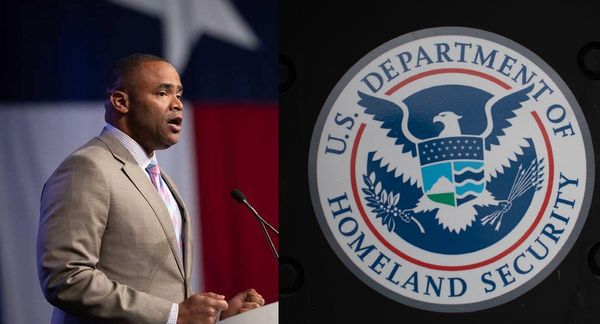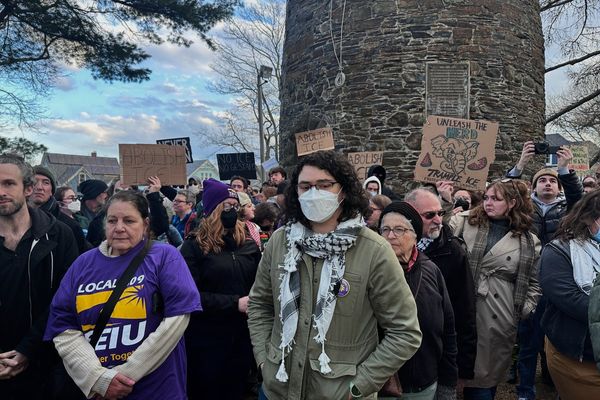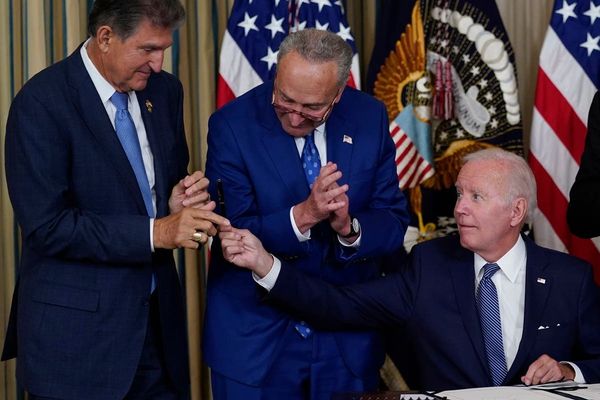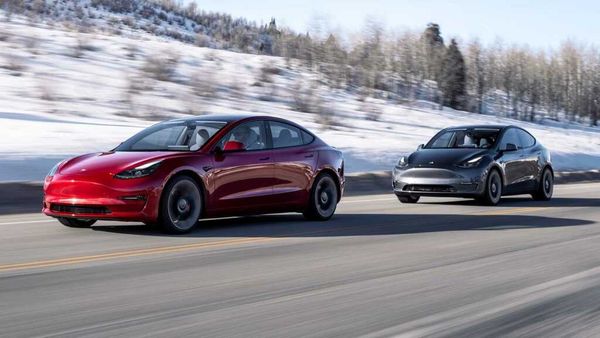The climate bill President Biden signed into law yesterday will open up tens of billions of dollars in subsidies for high-tech electric vehicle plants across the South and the Midwest.
Why it matters: The package is a big down payment on addressing climate change and moving toward energy independence as the U.S. races to build a domestic supply chain for batteries and other critical materials.
- It could also be a major economic jolt for a large swath of the country some are calling the Battery Belt, where lots of EV-related factories and facilities are being built.
Driving the news: The auto industry has already poured billions into new EV and battery manufacturing facilities across North America over the last couple years.
- Now automakers and battery suppliers will be eligible for billions of dollars in federal loans and tax credits to offset those costs and spur additional investments.
For example: The government will provide a tax credit of $35 per kilowatt hour (kWh) for each U.S.-produced battery cell.
- That's 35% of today's average cost of producing a battery cell.
- Ford, for instance, could get a $3 billion tax break for the twin factories it's building in Kentucky, which will be able to produce 86 gigawatt hours' worth of batteries annually. (The IRS still has to figure out how exactly the credits will work.)
There's also a tax credit for U.S.-produced battery modules — groups of cells bundled together that fit inside a battery pack.
- At $10/kWh, the credit would whack about one-third off the cost of assembling an EV battery pack, according to Bloomberg NEF.
Critical materials and minerals produced in the U.S. also get a 10% tax credit under the new law.
- That will help companies like Redwood Materials, which is investing $3.5 billion in Nevada for cathode and anode processing — essential work in the battery production process that's currently done mostly overseas.
There's also $2 billion in grants to retool existing auto plants to make clean vehicles, and up to $20 billion more in loans to build new factories.
The intrigue: And yet automakers aren't happy about the law, largely because its strict supply chain requirements mean far fewer electric vehicles will qualify for big consumer tax credits right off the bat.
Yes, but: Over time, reshoring battery production should drive down the cost of EVs — and lessen U.S. dependence on China.
- The optimists' view: By incentivizing a domestic EV component supply chain, the law will help reduce automakers' costs — and they'll pass those savings along to consumers in the form of cheaper electric cars.
Between the lines: In essence, the U.S. has shifted the incentives for EV adoption from consumers to manufacturers — instead of making electrics cheaper for car buyers, the new law rewards carmakers for building EVs with U.S.-made batteries.
- Lawmakers are not "just putting on new rules and saying, 'good luck.' They're putting tens of billions of dollars on the table to help [automakers] get there," said Joe Britton, executive director of the Zero Emission Transportation Association.
The bottom line: Automakers' scramble to meet domestic content requirements will lead to a rapid build-out of manufacturing capacity for electric vehicles, batteries, and the components and materials required to produce them.










